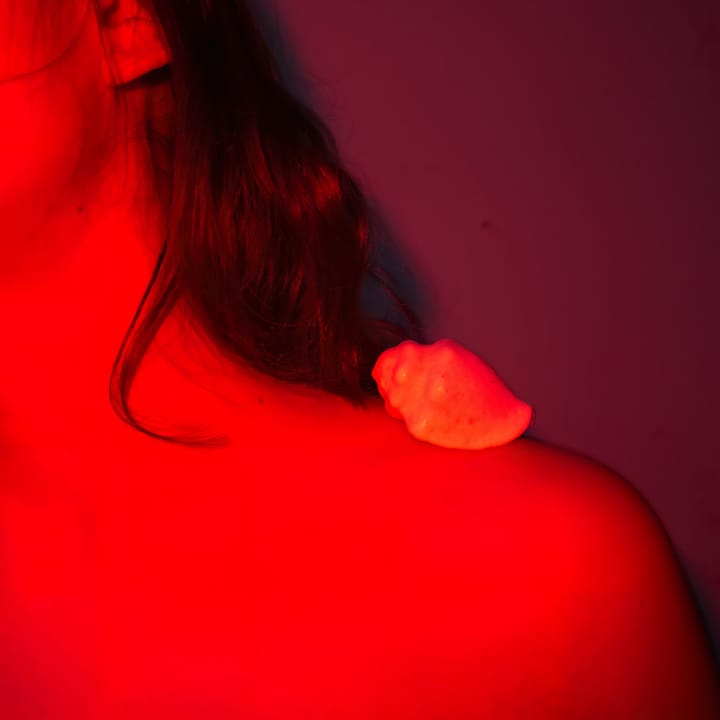Review: Lucie Vítková – Cave Acoustics
Sound cradled in the grand echoes of churches and caves. Reflections on family, grief, legacy, transformation.

In titling the album Cave Acoustics, Lucie Vítková prompts a primary consideration for our surroundings, both literal and semantic. One is led to appraise not just the sources of sound (stones, tins, coins, cowbells, voices, insects, flute, more), but the convergence of other contextual details that gift these pieces their significance. For example, the recording locations of labyrinthine caves and an abandoned gothic church; the fact that Vítková collaborated with their sisters for the very first time on this record; the knowledge that this record contains enactments of shared grief and transformative interactions with nature. “Acoustics”, then, represent everything that embellishes the scuff of a metal tin or crack of a stone. This could be the literal reverberations of large spaces, or the cradling of these sounds in questions of identity or familial legacy. Both render the sound as more than itself.
In the first half, two pieces performed by Vítková and their siblings wield the echo to draw edges into ambiguity. On “Trash Trio", the setting of Výpustek cave augments the scuttle of tins and coins into something reminiscent of crackling fire or intermittent rainfall. At one point the trio converge on a common percussive refrain as if by accident, like smatterings of clouds suddenly coalescing into written statements. “Hair Score” also harnesses themes of convergence, with the trio’s voices rendered in ribbons of vowels that intertwine, find eachother, peel away, swoop up, swoop down. Often the voices appear to be merging together, the harmonics of one melting into the overtones of another, briefly turning separate mouths into a solitary one. The accompanying text states that this piece is an attempt to process the death of their mother, and the intermingling/detaching of voices feels analogous to the paradox of familial grief, through which one can feel both isolated and unified in the shared emotional experience.
Suddenly the space shrinks down on “Stones” – perhaps we've retreated to one of the cave's tighter nooks – and the trio turn to a composition by Christian Wolff, which instructs the players to not break anything. It's a directive that they take to the brink, hammering stones against surfaces with force, with Vítková again manifesting a reflection on the temporary nature of “edges” (what does it mean to “break” something that is partial to begin with, with stones themselves being dislodged shards of earthly mineral?). Final piece "Inside The Ritual" switches the setting to an abandoned church, with Vítková now alone among the chirp of various insects. Gently they emerge again in a clatter of cowbell, to which the insects respond by increasing their volume. In turn, Vítková throttles back. There’s a sensitive dialogue occurring here, with voice and landscape tempering their desire to speak in order to create space to listen. Vítková melts into their surroundings over the piece’s 23 minutes, growing in volume and confidence as the environment invites them in further, culminating in their flowering into beautiful, blurred alternations between voice (humming, whistling) and Japanese hichiriki flute. By this point the contributions of Vítková could be the call of a bird or the whistle of the wind, the edges of performer unspooled into their setting. All becomes acoustics.

![Review: [something's happening] – Buzz](/content/images/size/w720/2025/03/a3798122591_10.jpg)

